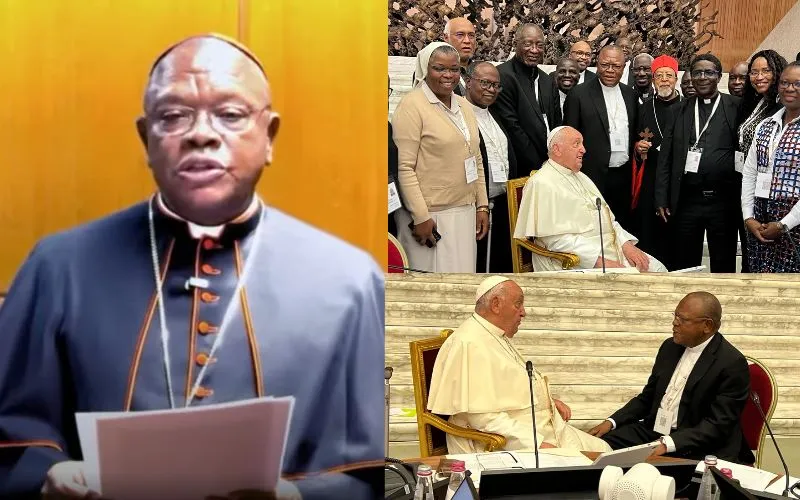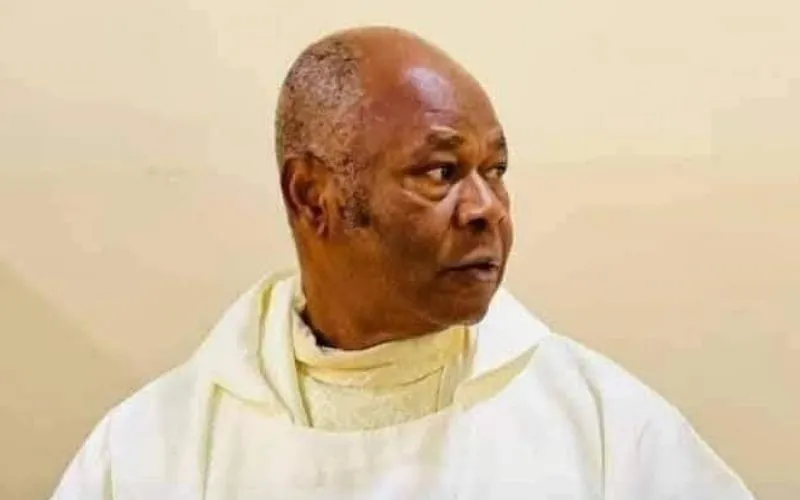In Africa, he said, polygamy takes several forms, including polygyny, where a man has multiple wives; and polyandry, where a woman has multiple husbands.
The President of SECAM noted that “in modern Africa, we see the emergence of new forms of polygamy through new forms of cohabitation where children are recognized as legitimate.”
“The evangelizing work, making an eruption in our cultures, has faced a legitimately very rooted polygamy, so much so that the valiant first missionary found himself in the abyss in relation to the monogamous marriage desired by Christianity,” the Catholic Church leader said.
However, he said the missionaries “firmly proposed the monogamous doctrine to which a multitude of our African compatriots adhere with faith to this day.”
“Relying on the Bible, they made it clear that the many cases of polygamous figures found in the Bible were inscribed in the plan of God, leading his people to discover that the model to be reached was rather the monogamy found from the beginning of the book of Genesis and extended in the New Testament writings,” Cardinal Ambomgo explained.
(Story continues below)
He continued, “The catechesis in force teaches that polygamy is not the ideal of the couple desired by God. The Creator at the beginning made men and women and said, this is why the man will leave his father and mother to attach himself to his wife and the two will make only one flesh. This is the doctrine that we maintain in our churches in Africa.”
“There is an urgent need for a pastoral accompaniment of polygamy. The accompaniment of people in a situation of polygamy in our churches remains to be specified,” Cardinal Ambongo said.
Earlier, in April, SECAM leadership announced the establishment of a Commission to discern pastoral care towards persons in polygamous unions.
The Secretary General of SECAM, Fr. Rafael Simbine Junior, confirmed the creation of the Commission at an April 25 press conference on the sidelines of the four-day meeting of delegates representing Africa at the Synod on Synodality, ahead of the 2-29 October 2024 session.
“We set up this Commission made up of mainly theologians from different fields who are doing this work,” Fr. Simbine said, adding that members of the created Commission have the mandate to study “special issues”, including “the matter of polygamy”.
The theological discernment is likely to entail calling to mind the stance of the Catholic Church on polygamy in relation to the Church’s understanding of the institution of marriage and the Sacrament of Matrimony.
The Compendium of the Social Doctrine of the Church (CSDC 217), a publication of the Pontifical Council for Justice and Peace, the Catechism of the Catholic Church (CCC 1645), the December 1965 Pastoral Constitution on the Church in the Modern World, Gaudium et Spes (GS, 48#1), and the November 1981 Apostolic Exhortation on the role of the Christian family in the modern world, Familiaris Consortio, are likely to be referenced.
Meanwhile, a pastoral discernment is likely to involve reflections on ways of journeying with persons in situations of polygamy in the world's second-largest and second-most populous continent.
In November 2023, members of the Inter-Regional Meeting of the Bishops of Southern Africa (IMBISA), who include Catholic Bishops in nine countries of Southern Africa tasked theologians in the region to “shed light” on the practices of traditional initiation and polygamy.
In Kenya’s Catholic Archdiocese of Kisumu, St. Monica Women Group was established to rescue Catholic widows whose other option was to be inherited and be part of a polygamous union.
ACI Africa was founded in 2019. We provide free, up-to-the-minute news affecting the Catholic Church in Africa, giving particular emphasis to the words of the Holy Father and happenings of the Holy See, to any person with access to the internet. ACI Africa is proud to offer free access to its news items to Catholic dioceses, parishes, and websites, in order to increase awareness of the activities of the universal Church and to foster a sense of Catholic thought and culture in the life of every Catholic.





